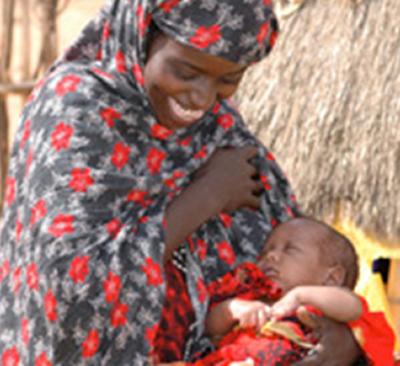Online map of maternal health to inform and influence world leaders

Researchers from the University of Southampton have helped construct an online interactive world map which gives stark facts and figures about the health of women during pregnancy, childbirth and following the birth of their child.
Social scientists Professor Zoë Matthews and Dr Sarah Neal are working in collaboration with the White Ribbon Alliance for Safe Motherhood and the University of Aberdeen on a joint project worth in excess of £160,000 called ‘The Atlas of Birth’, which also includes a book, short film and flyers.
“We are using data from the United Nations and the World Health Organization to give a comprehensive picture of maternal health from around the world. Part of the project involves presenting the information in an easy-to-use online map, to help get key facts direct to policymakers,” comments Professor Matthews of the University’s Centre for Global Health, Population, Poverty and Policy.
Funded by the Partnership for Maternal, Newborn and Child Health and the Norwegian government, the project includes statistics on a wide range of issues including maternal deaths, pregnancies to very young girls and midwife contact.
Latest figures from the WHO show more than 99 percent of maternal deaths occur in developing countries and most of these in a handful of nations. Most of the very high rates of death are seen in sub-Saharan Africa, but India has the highest number of deaths, with 63,000 women dying every year.
Women in developing countries often become a mother very young, experience many closely spaced births, and run a risk as high as one in 11 of dying in childbirth across their lifetimes. In particular, girls under the age of 15 are five times more likely to die giving birth than women in their 20s.
Care from a midwife or professional with midwifery skills during birth is key to saving lives of both mothers and newborns. Despite this, the figures show two thirds of women in the poorest countries deliver without a midwife or other health worker.
“This interactive map will enable advocates across the world to quickly and effectively lobby governments, influence policymakers and inform the media, as public pressure grows to end the tragic and almost always preventable deaths of girls and women in childbirth,” comments Brigid McConville, Director of the WRA in the UK.
The new online world map was unveiled at the PMNCH Partner’s Forum in Delhi, India (Nov 2010). To view the online version of the ‘Atlas of Birth’, please go to this address: www.atlasofbirth.com/index.php
Ends